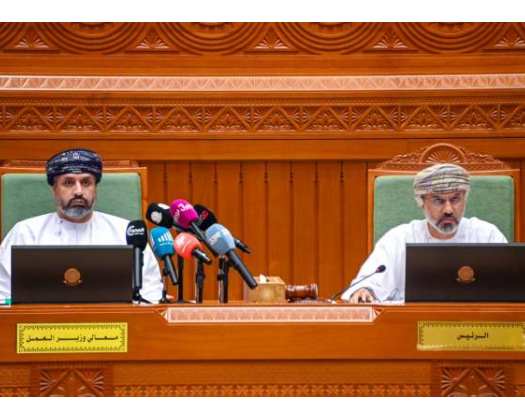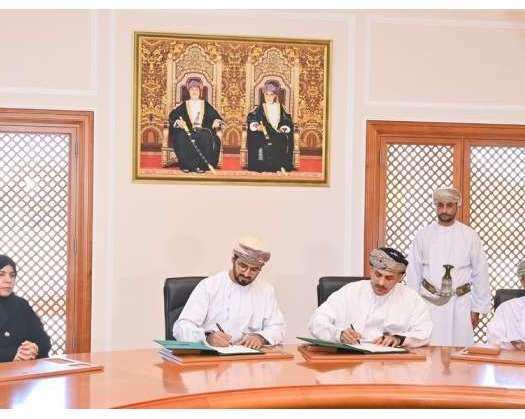Muscat: The Shura Council convened today for its third regular session of the second annual meeting of the 10th Term, where it engaged in discussions regarding "temporary employment initiatives" with Dr. Mahad Said Ba'owain, the Minister of Labour.
In his address, Khalid Hilal Al Maawali, Chairman of the Shura Council, emphasized that the visions and proposals related to temporary employment initiatives align with national objectives and aim to consolidate efforts for the public good.
The Minister of Labour remarked that the session involved comprehensive discussions on critical aspects relevant to national development and the aspirations of Omani citizens.
He noted that the focus of the session was on three key initiatives: the “Employment Contracts Initiative,” the “One Million Hours Initiative,” and the “Sahim Programme.”
Dr. Mahad highlighted that these initiatives serve as strategic programs designed to improve the effectiveness of the national workforce, empower Omani youth, and enhance their competitiveness in the job market.
He further stated that the meeting provided a platform to reinforce shared visions and a profound understanding of the labour sector's needs.
The minister also pointed out that the session underscored the participants' awareness of national priorities and their commitment to developing strategies that foster sustainable growth, economic advancement, and social stability.
The meeting was conducted in accordance with Article 68 of the Council of Oman Law and Article 56 of the Shura Council Law, which empower the Shura Council to oversee public matters and utilize its authority to invite officials for discussions on issues of public significance.
During the discussions on "Temporary Employment Initiatives," the session reviewed the results of implementing various types of temporary employment contracts within the government sector, along with the Ministry's strategies for their enhancement.
Additionally, the session examined the outcomes of employment contracts in the private sector, the challenges faced by the Ministry, the future of both existing and temporary employment contracts, and the Labour Ministry's approach to addressing these issues in line with the current Labour Law.
The meeting also evaluated the Ministry's perspective on the legal and administrative frameworks governing temporary employment contracts, considering the dynamics of the fluctuating labor market.
Furthermore, the session addressed the technological and artificial intelligence (AI) requirements, as well as the Ministry's assessment of the positive and negative effects of implementing temporary employment initiatives, particularly regarding their impact on the work environment and the national workforce in both public and private sectors.












